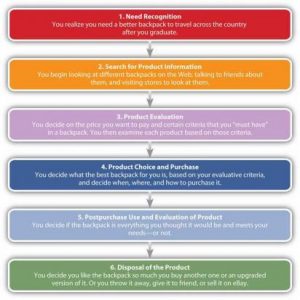Given today’s increasingly globalized economic landscape, U.S. small businesses that disregard the importance of international trade and limit themselves to the domestic market will do so at their own peril.
“Expanding overseas is no longer a luxury. In today’s global market it is a necessity,” says Larry Harding, head of corporate development for Radius, which partnered with CFO Research to create the Pushing the Boundaries of Business Overseas study. “In the past, international expansion has been associated with outsourcing or lowering operational overhead, but that’s no longer remotely the case. Today, international expansion is about being where your customers are, opening new markets, and realizing as much growth potential as you can.”
That isn’t to say that crafting an international trade strategy isn’t without its challenges. According to a report from the United States International Trade Commission, “Trade barriers, including both tariffs and nontariff measures, disproportionately affect SMEs [Small and Medium-Size Enterprises] relative to large firms, as do many business impediments, such as high transportation costs.”
The data backs up this up. While 97 percent of all exporters are small businesses, they account for only 30% of total exports, according the United States International Trade Commission.
So, how can small businesses think globally from the start?
We posed this question to U.S. Chamber’s Advocacy Council of Young Entrepreneurs, who offered this advice: Target large international companies that are growing quickly, as clients give small businesses easier access and enhanced credibility into global markets.
The Power Of Working With International Companies To Get Into International Markets
International trade affects small business in more ways than just direct cross-border trade opportunities. Many successful small businesses serve large global organizations headquartered in the U.S., as well as businesses that rely on international markets. International trade opportunities therefore deeply affect a client’s success, an effect that is compounded as those small companies generate business for their peers.
Working with international, U.S.-based companies, small businesses can take advantage of international trade without having to spend heavily on things like traveling, learning a new culture, and complying with regulations. International trade also opens up markets that can fuel growth even amid lackluster domestic conditions.
Below are a few of the responses from advocacy council members highlighting a number of ways that working with large international companies can be beneficial for small businesses:
 Robby Hill, Founder and CEO, HillSouth
Robby Hill, Founder and CEO, HillSouth
HillSouth is an IT consulting firm serving small and medium-sized businesses using technologies that are physical, virtual, hybrid or cloud.
“Many of my clients are American-based manufacturing companies. They employ people in my community and ship many of their finished products through the Port of Charleston around the globe. Without reliable financing from Export-Import Bank my company will have less clients to serve as our customers will be doing less or no business overseas. This affects our entire economy.”
 Zachary Johnson, CEO & Co-Founder, Syndio Social
Zachary Johnson, CEO & Co-Founder, Syndio Social
Syndio Social helps large organizations like P&G and the European Commission accelerate adoption of tools and behaviors through applied social network analysis.
“My business specializes in helping functionally and globally dispersed companies communicate across internal silos. The more international trade, the more dispersed organizations become, the more silos they have, the more we can be of service.”

Raj Lahoti, CEO & Co-Founder, DMV.org
Since 1999, over 450 million visitors have used DMV.org to save time, save money, or even a trip to the DMV.
“Although our organization does business with mostly companies and individuals in the United States, a substantial percentage of our customer base does business internationally. When these businesses are negatively affected, they aren’t able to be as flexible.”

Ben Clarke, CEO, The Shipyard
The Shipyard is a digital marketing agency serving large brands like Prudential, Nationwide, Scotts, and AIG.
“A huge amount of the growth in marketing and advertising industry (especially digital) is overseas. We cannot grow at the rate we need to by continuing to compete against domestic agencies for domestic clients. Our industry needs new money in from international businesses, and we need to partner with international agencies.”
It is safe to say then that international trade is not only beneficial, but essential to the success of small businesses, large enterprises, and the US economy as a whole.
Business & Finance Articles on Business 2 Community(108)








